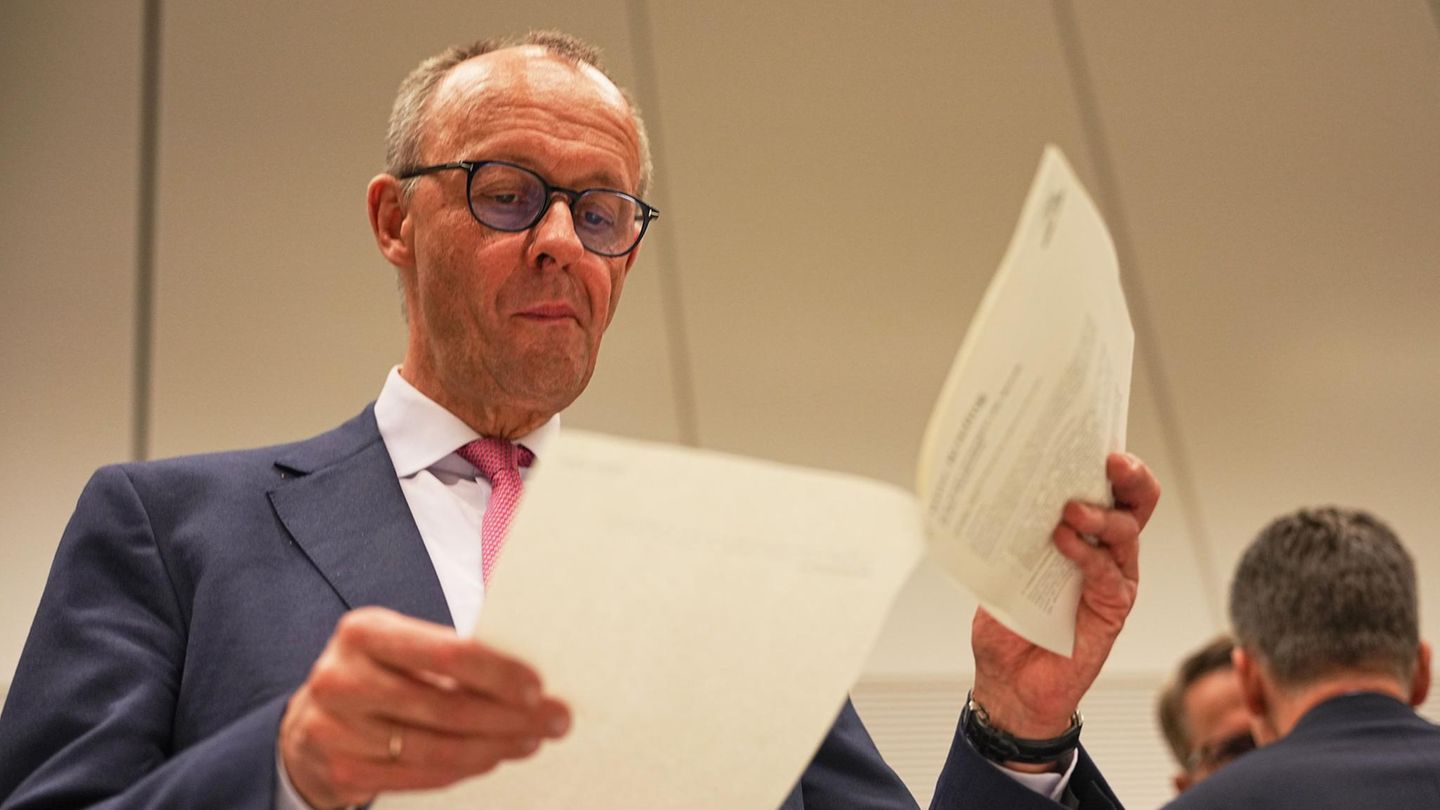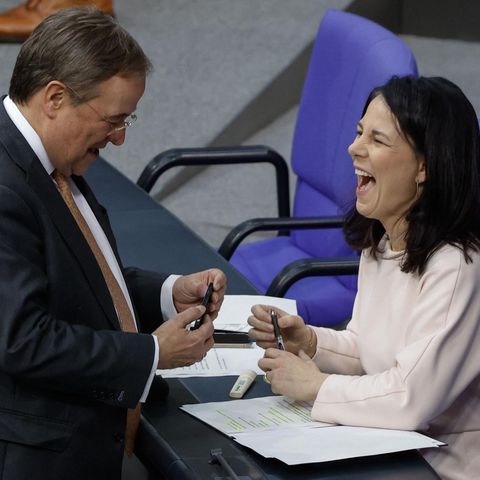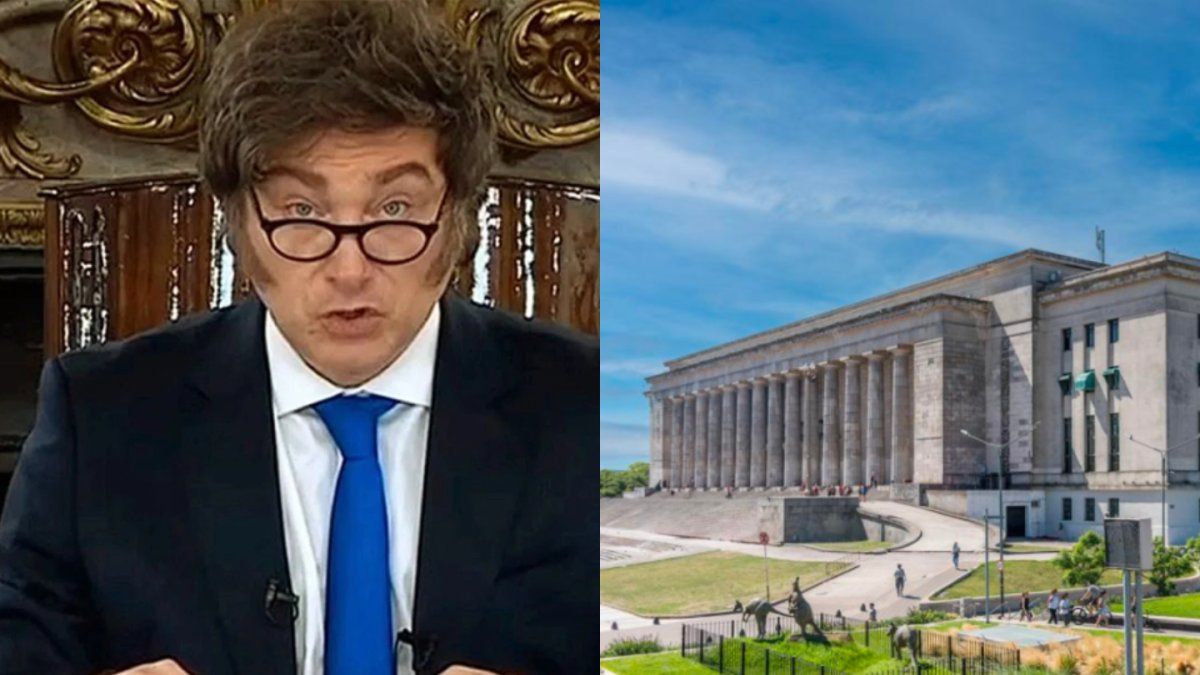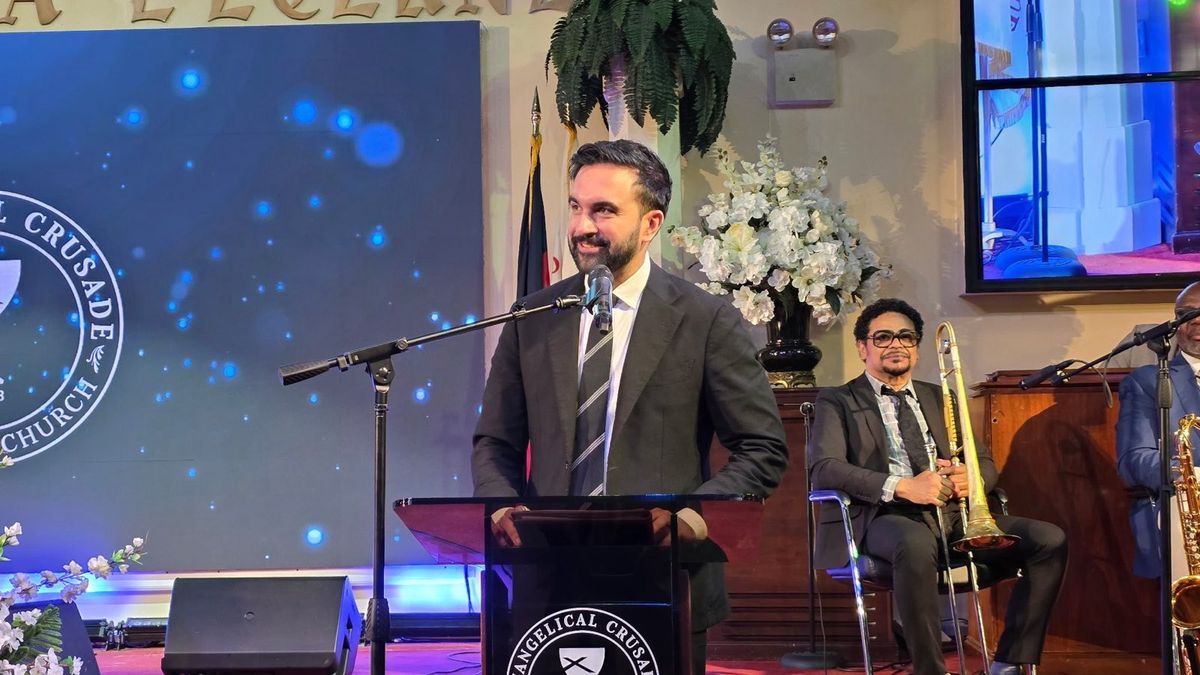“Immediate program”
What the Union wants to implement immediately after the election
Copy the current link
The CDU meets the Federal Party Congress. The delegates decide which topics they want to tackle in the event of an election victory. An overview of the points.
At its federal party conference on Monday in Berlin, the CDU plans to adopt an “immediate program for prosperity and security”, which is to be implemented immediately in the event of a government takeover. “We have to get the economy going again, we have to ensure security again,” says the introduction to the one -sided program, which includes a short version of the extensive election program of the CDU/CSU.
The paper contains Merz’s five-point plan, which provides for rejections to the limits and permanent border controls. This proposal had only received a majority in the Bundestag on Wednesday because the CDU boss accepted votes from the AfD. This had caused outrage for the SPD and the Greens as well as criticism of the churches and also from their own ranks.
It is eagerly awaited whether on Monday the ranks of the 1,001 delegated open criticism of the course of Merz will be loud.
Migration, work, security – that is in the “immediate program” of the CDU
- Relief: According to the “immediate program”, the electricity tax and the network charges should decrease – at least five cents per kilowatt hour. The sales tax in restaurants is to drop to seven percent, which should relieve gastronomy and consumers. For farmers there should be full agricultural diesel remuneration again. The economy is to be relieved of bureaucracy: fewer operating officers, no more bonus, end of German supply chain regulation.
- Work: Instead of the daily maximum working hours, a weekly maximum working time should apply – this should enable employees and companies more flexible. Oxyion surcharges are to be made tax -free. If you want to continue working voluntarily in retirement, you will receive the salary of up to 2000 euros a month.
- migration: The so-called five-point plan by Chancellor candidate Friedrich Merz against irregular migration is to be implemented by law: with permanent border controls, rejections at the limits and a temporary retirement arrest for criminals and dangers that are subject to exit. The “influx limitation law” is also to be adopted – with a stop of the family reunification for subsidiary protectionists and more powers for the federal police.
- Internal security: The Union wants to enforce the controversial data retention – especially the fight against sexual child abuse. In addition, the electronic ankle bondage is to be introduced for women against women.
- Reflection of traffic lights: The shortening of the deadline for naturalization from eight to five years should be reversed: “The German passport is at the end of integration and not at the beginning.” The heating law is to be abolished because it stands for “bureaucratic reinvention in the heating cellar”. The partial legalization of cannabis is also to be reversed. The Union wants to lower the number of government officers, which has increased under the “traffic light” – by half.
Merz categorically concluded on a tour of the party parliamentary hall that he would put on AfD votes in a government he had led. He had “really said very clearly and very clearly several times: We will not work with the AfD. We are fighting for political majorities in the wide middle of our democratic spectrum,” he emphasized. When asked whether he would accept AfD votes for a majority, he replied: “No.”
Merz receives partial backing from his own ranks
Hesse’s Prime Minister Boris Rhein and other representatives of the CDU tip stood behind Merz on the eve of the convention. When asked whether the discussion about possible cooperation with the AfD in the election campaign, Rhein also said in front of meetings of the CDU Spitzen bodies in Berlin in the face of persistent protests: “No, on the contrary. The citizens and the voters know Now who stands where, who stands for which position. ” It has also become very clear: “With red and green there is no U -turn in migration policy.”
The CDU convention is likely to be accompanied by protests. Organizations such as Fridays for Future and together against the right have announced demonstrations against a cooperation between the Union with the AfD.
CSU boss Markus Söder sees the position of the Union significantly strengthened after the controversial votes on migration policy in the Bundestag. The procedure “fundamentally increased the credibility,” said the Bavarian Prime Minister on Sunday evening on the ZDF program “Berlin Direkt”. For many years, citizens have no longer believed that something was happening in Germany against the limitation of illegal migration. “This week, the Union made it clear that it was serious. And this also increases the credibility of a new Chancellor Friedrich Merz enormously,” said Söder.
On the other hand, the Rhineland-Palatinate Prime Minister Alexander Schweitzer of the Union now attested a credibility problem-and a “Merz problem”, especially with a view to possible coalitions after the Bundestag election. “Merz made it extremely difficult for his party with his opening to the AfD to find partners after the Bundestag election. He broke his word,” Schweitzer told the Editorial Network Germany. “The question is whether there can be a government with Mr. Merz.”
AFP · dpa
CL
Source: Stern
I have been working in the news industry for over 6 years, first as a reporter and now as an editor. I have covered politics extensively, and my work has appeared in major newspapers and online news outlets around the world. In addition to my writing, I also contribute regularly to 24 Hours World.





